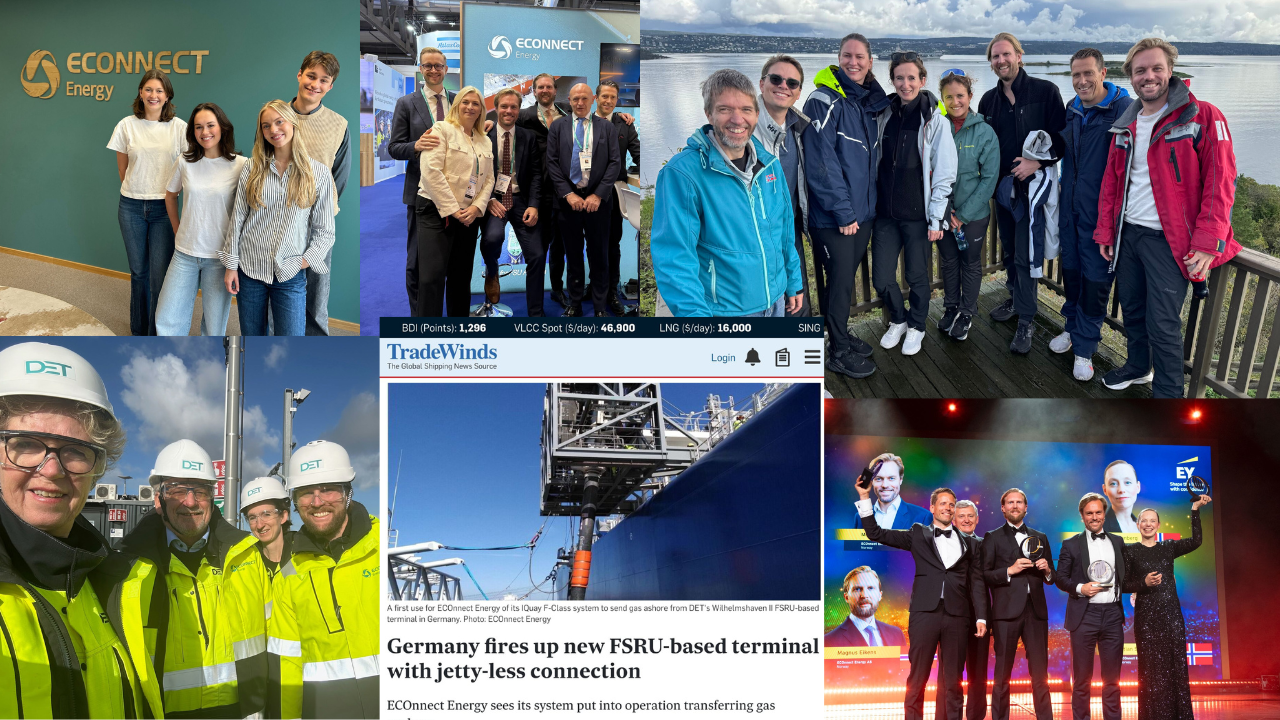The installation and commissioning of the IQuay F-Class system has been successfully completed at the Wilhelmshaven II LNG terminal. Following final functionality testing and startup procedures, the terminal is now in operation, supporting continuous gas transfer to shore.
Developed in partnership with FSRU Wilhelmshaven GmbH (a joint venture between TES and ENGIE), and operated by Deutsche Energy Terminal GmbH (DET), Wilhelmshaven II demonstrates how public–private collaboration and smart engineering can deliver infrastructure that is both urgent and enduring.
The IQuay F-Class underwent a comprehensive testing programme, including factory acceptance, site acceptance testing (SAT), and pre-commissioning activities, all overseen by key industry partners and regulatory authorities. These steps validated the system’s integrity and operability prior to gas send-out, which included a ship-to-ship (STS) transfer and cooldown operations.
Strengthening Germany’s energy security
Unlike conventional infrastructure requiring fixed jetties of up to 1.7 kilometers, the IQuay system delivers full offshore functionality with minimal environmental impact, drastically reducing time, cost, and marine disturbance. It also represents a significant step forward in the development of environmentally responsible infrastructure that is adaptable for future decarbonization needs.
“This project demonstrates that critical energy infrastructure can be developed efficiently, while minimizing environmental impact and meeting the highest safety standards set by German authorities””, said Morten Christophersen, CEO of ECOnnect Energy. “It’s been a privilege to work with our clients, suppliers and partners. I’m proud of the project team’s tremendous effort in strengthening Germany’s energy security.”
Installed offshore in the sensitive Jade Bay ecosystem, the IQuay F-Class enables direct natural gas transfer from the FSRU Excelerate Excelsior to shore without the need for fixed marine jetties or invasive construction. This dramatically reduces seabed disruption and minimizes impact on local marine life, setting a new benchmark for sustainable energy infrastructure.
Minimising risk, maximising efficiency
The IQuay F-Class enhances operational safety by reducing reliance on conventional marine construction and onshore handling. By enabling direct offshore transfer of gas, the system streamlines logistics while minimizing risk and complexity in port operations.
As global energy systems transition, ECOnnect Energy’s flexible, jettyless approach offers an adaptable model for ports and nations looking to meet immediate energy needs while preparing for a net-zero future.
“Energy infrastructure can be built smarter, faster, and more sustainably and we’re only getting started. Global demand for these kinds of solutions is accelerating,” said Christophersen.







